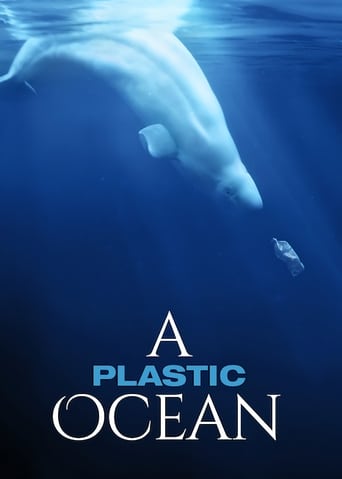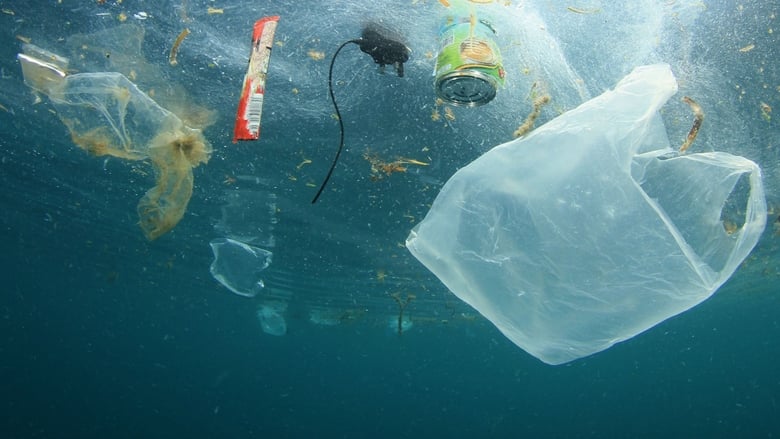
A documentary focused on plastic pollution in the world's oceans.
Reviews
Very very predictable, including the post credit scene !!!
The film's masterful storytelling did its job. The message was clear. No need to overdo.
This is a gorgeous movie made by a gorgeous spirit.
Worth seeing just to witness how winsome it is.
Documentaries help us change perspectives. Or, at least, they should. This one, for instance, achieved its goal and its audience (hopefully). It is approachable, making people realize the impact of their unconscious decisions and, therefore, they become more aware of their actions and start to shift plans. It's hard to believe, but true, that through visual example humans are more willing to change behaviour than from receiving the same information through speech or from having it written down. We don't predict the future, we shape it by determination and desire to strive for a better day.
This film is so anxious to blame the US with its net non recycled production of all plastic slightly higher than Europe that it fails to even mention once that the types of plastics that are believed by the science to be the biggest contributors are in fact sourced form Asia and Europe at much higher rate per capita. It also when needed for its narrative switches between consumption and production, as if Europe's higher consumption than production makes it more benign. kind of reminds me of "Inconvenient Truth" and its manipulation of data, making the US the leading contributor to carbon output when not mention hat because of the huge efficiencies of the US, the US is producing more goods and food with less carbon per ton grown than Asia, Africa or Europe. The reason for the low acceptance of the science on global warming is an effect of the obscene level of manipulation of figures on production and consumption to resulting production, that allows the US to be blamed, and using this to rationalize subjecting the US to super-national redistribution of money and wealth. The science on the problem is real, the science on the solutions is flat earth junk science and statistical manipulation. Productivity in its ratio to carbon and plastic use matters.the makers of this film would have been much better off in science communications if they had stuck to the science, instead of promulgating poltical diatribes that do not stand scrutiny of some basic logical controls
You can toss this one into the same garbage bin as Inconvenient Truth was tossed into. So much speculation and tunnel vision that it's obvious it's agenda motivated. *Definitely* not scientific!
When I watched Al Gore's An Inconvenient Truth, I felt there was nothing new to learn about how we destroy the environment anymore. However, A Plastic Ocean manages to carve a niche in the environmental documentary genre. Following a clear format like a conventional essay, the problem is introduced, the individuals studying the problems raise their concerns, and specific examples are churned to hammer home the message that plastic literally kills. The third act of the film shows how the problem is being dealt with and how individuals actually tackle the problem. The strict following of format works to effectively communicate the director's point. The documentary even manages to have an attractive female diver to advocate the cause. In short, this documentary is a call to action using clever techniques to grab attention of the audiences of the plight of our oceans, and proposes answers. The scenes of animal autopsies showing plastic pieces in their stomachs are quite disturbing, and feels like a found footage horror piece. These scenes are spread throughout the movie and never fails to shock. However, the documentary seems to drag at times, and some actions such as the director asking shops to stop using plastic seemed to moralistic. Despite this, the documentary does not try to place the blame on anyone, or any company. It presents ideas, and even portrays corporations in a positive light. One Chinese company (usually vilified by Western media) which spilled tonnes of plastic due to a storm was portrayed as actively participating to clean up the mess and aid to be 'responsible' for its actions. This approach of not antagonizing any party is quite refreshing, and makes this documentary worth watching for its presentation value. To sum up, this is an informative documentary about a problem we overlooked, and it proposes solutions and does not scare you as much as Al Gore's Inconvenient Truth.
Top Streaming Movies














